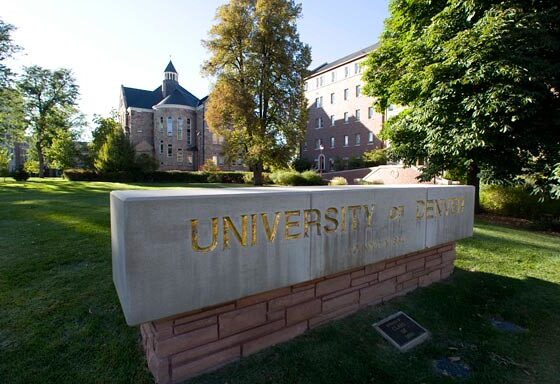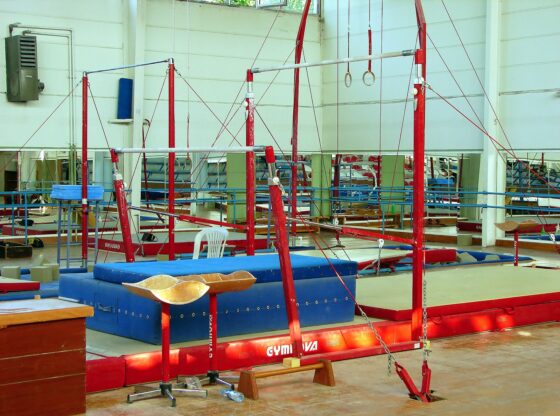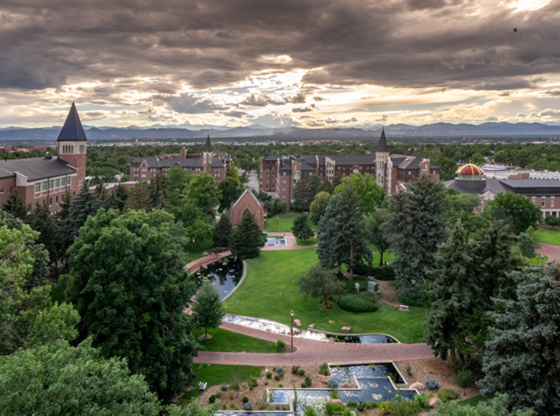The University of Denver needs a rebrand.
With declining rankings, budget constraints, a falling yield rate and rising layoffs, it’s clear the institution is at a crossroads. The issue? A failure to define and communicate a compelling identity.
Under Chancellor Jeremy Haefner’s leadership, DU appears to be positioning itself as a regional ski college—a far cry from the ambitions of a top-tier national institution. The branding reflects this shift.
Take the university’s website, which proudly declares “over 70% of our undergraduates choose to make Colorado their home after graduation.”
A more honest interpretation? “Less than 30% of our undergraduates manage to find jobs outside of Denver.”
Our school has a unique advantage over its competitors: it was founded 6 years after Denver, positioning it as the first elite privately owned university in a burgeoning metropolitan area that continues to experience rapid growth.
As Denver flourishes, DU should be advancing just as dynamically, positioning itself as a forward-thinking institution — not one in freefall.
DU has fallen 41 spots in the US News national rankings of colleges since 2018.
The University of Denver’s branding problem is twofold: an ambiguous identity and a failure to leverage its strengths.
Even the university’s nickname, “DU,” suggests an inferiority complex, as though it’s hesitant to claim its rightful place as a leader in Denver’s higher education. By referring to itself as “Denver University,” the name implies the existence of other institutions in the city equally deserving of the title. Compare this with other schools, like the University of Chicago, which confidently asserts its prominence as “UChicago” despite the presence of 72 colleges in the city.
Institutions like UPenn and UChicago don’t rebrand as “Pennsylvania University” or “Chicago University” because their names project authority, pride and historical significance — qualities DU’s branding fails to convince.
Adding to the identity crisis is Chancellor Haefner’s flagship initiative, the 4D Experience. Marketed as DU’s core idea, the 4D Experience has failed to connect with students, donors or potential applicants.
The 4D Experience, introduced in 2021, feels like a hollow buzzword. It’s disconnected from the student body, irrelevant to donors and ineffective as a recruitment tool. If DU’s administration can’t articulate its purpose clearly, how can it expect to inspire confidence in prospective students?
Chancellor Haefner has been trying to separate the school’s academic identity from its ties to the mountains, but hasn’t made much progress. He knows that the University of Denver needs to prove that it offers more than just easy access to Copper and Winter Park — and the 4D experience isn’t the way to do it.
The University of Denver is a Division I school located in the heart of Colorado’s capital, just 30 minutes from the Rocky Mountains and Boulder — a city rapidly emerging as one of the nation’s premier tech hubs. This prime location offers students more than just unparalleled access to outdoor recreation. Denver has a thriving urban economy, and Boulder is quickly morphing into a booming tech ecosystem.
DU’s athletic programs only enhance its profile; the hockey team secured its 10th National Championship last year, cementing its legacy as the most decorated program in the sport. The men’s soccer team earned a 2nd-place national finish, and both the men’s and women’s lacrosse teams consistently rank among the top 10 in the country. Yet we don’t have a mascot.
With access to Boulder’s tech industry, Colorado Springs’s aerospace sector and Denver’s growth as a metropolitan hub, DU is uniquely positioned to attract ambitious students and forge partnerships with leading companies. Yet, despite these advantages, the university has struggled to define itself as a hub of innovation or leadership, missing opportunities to position itself as a bridge between regional and global.
This lack of a clear identity is glaringly reflected in the university’s unperceptive branding decisions. The outdated slogan, “One of the great private universities of the West,” doesn’t just undersell DU but also boxes the university into a regional identity, making it sound more like a well-kept local secret than a powerhouse with global ambitions.
Instead of leaning into its assets like the Korbel School, which is ranked 12th globally, or its historical ties to Denver’s growth, the university degrades its image with broad, uninspired marketing, like the baffling logo change.
What once was an academically distinguished emblem has been replaced with a design that looks like it belongs on a high school gymnasium wall, paired with an outdated, uninspired color palette — a misstep so egregious it deserves an article of its own.
The University of Denver needs more than a marketing overhaul — it needs a vision that aligns with its history, location and potential.
We need to stop apologizing for being “Denver University”. We have been hesitant about its name for too long. To move forward, we must adopt a new name that symbolizes a fresh start, one that truly represents our “strive for excellence, innovation, engagement, integrity and inclusiveness.”
The same goes for its branding. The current logo does not capture DU’s legacy. Instead, the minimalist modern logo erases DU’s proud age. The old emblem it replaces featured a burgundy red background with the Williams Bell Tower, which was built in 1999 and rapidly became an iconic architectural staple in Denver. DU needs to either go back to that previous logo or create a new one entirely.
If they do decide to create a new one, we need to adopt a design that reflects academic prestige, taking cues from elite schools like Duke, Stanford or UChicago and pairing it with a more modern color palette. The DU logo will appear more presentable, something that could finally project the kind of confidence that quietly intimidates others when it shows up on one’s LinkedIn profile.
The University of Denver sits in a globally connected city, and yet with an undergraduate international student population limping along at a staggeringly low 3%, DU seems content sitting at the kiddie table of global academia. This is not just a missed opportunity; this is a jaw-dropping short-sighted blunder.
A university situated in a major US city, nestled within innovation and international connections, should be a magnet for global students. How do liberal arts schools in the middle of Massachusetts, like Amherst, have nearly 4 times more international students than us? It’s time to double down on international recruitment and build programs that scream global engagement.
This all indirectly and directly falls back to Chancellor Haefner’s 4D Experience, the university’s attempt at a big, bold mission. Except it’s not bold. And as our 3% shows, not big. When a significant part of the student body doesn’t know what it means, you don’t have a mission — you have noise. The 2025 US News Rankings just came out, and all that the numbers are showing us is urgency.
I believe that DU is an extraordinary school with impressive faculties and committed students. But we are not getting our point across, and it has become obvious that change needs to happen. The 4D Experience needs to be reimagined into something that truly resonates with its students, faculty and applicants — something memorable that we can rally behind. If that’s not possible, it’s time to move on and focus on a vision that can unite the DU community, reignite the energy and attract back the type of interest the University of Denver used to bring.











